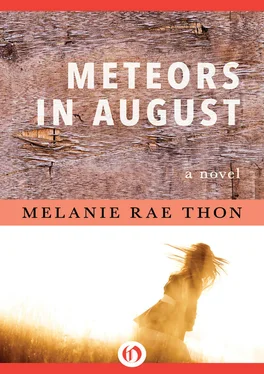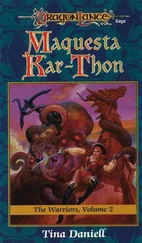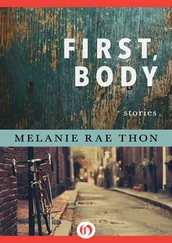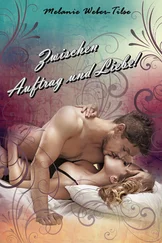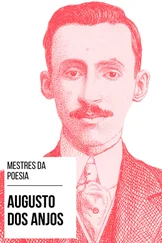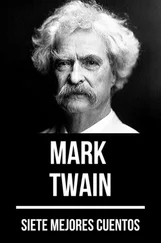And now a girl with my sister’s name sat in our kitchen, smoking cigarettes and cussing at my mother. The Nina I loved, the Nina I’d longed to see again, was not a star in this brilliant sky. She was not here, or anywhere that I might find her.
MY TWO oldest cousins seldom knocked at our door. Sometimes they yelled at me from the backyard; that was as friendly as they got. But when Justin and Marshall heard Nina was home, they came around the front like regular gentleman callers. I followed Nina to the door. Marshall wore a black T-shirt two sizes too small, sleeves rolled to the shoulders to reveal the bulge of his biceps. Sinewy blue ridges popped up along his forearms: he had good blood and plenty of it. Nina said, “Well, well,” taking a long whistle of a breath between her teeth, “it’s been a while.” She eyed Marshall from his cowlicks to his cowboy boots.
Justin stood a step behind his younger brother, seeing how Nina stared at Marshall, her own cousin. I was embarrassed, thinking she was no better than any of the Fureys, that she’d risk having six-toed babies with heads too small for a normal brain. Justin counted the seconds, knowing he’d get half as much — if he was lucky — that she would not linger fondly to consider his spreading paunch or short legs. She would not study his face, though she might pause long enough to observe to herself that his ratty beard did a poor job of camouflaging the weak chin. So Justin shook her hand and turned away first, chose the moment, gazing back over his shoulder to the western sky where the sun had sunk, leaving a rosy glow above the foothills. “Beautiful night,” he said.
“Still too hot,” said Nina, lifting the hair off the back of her neck.
Marshall said, “They’re talkin’ rain tomorrow or the next day.”
Nina regarded him with such gratitude and wonder you would have thought Marshall was going to make the rain himself.
“It’s gonna hit this fried earth and stink like steam off an iron,” I said.
Nina turned on me as if I’d uttered something close to blasphemy. “I didn’t know you were there,” she said. Then she laughed that laugh that made boys think of cool water running down their backs. “My little sister’s so quiet sometimes I think she’s just a shadow that decided to stand up straight instead of lying on the ground.”
“Your little sister’s not so little anymore,” said Marshall. Then they were all staring at me. My blouse felt too tight, as if a button might burst; a prickle of heat worked its way from the back of my knees up the inside of my thighs.
“Have a seat, boys,” Nina said.
They both scrambled for the porch swing, thinking she’d sit with one of them; but when Justin got there first, Nina sat in one of the wicker chairs and Marshall took the other. “We were hoping you’d drive over to Alpena with us tonight,” Justin said. “The Blue Moon has a live band. Good dancing music.”
“This heat has me so sapped I can’t even tolerate the suggestion of dancing,” Nina said.
“It’s air-conditioned,” said Marshall. “We’ll let you get nice and cool before we drag you on the floor.” They seemed to already whirl in a private dance, Nina a planet slowly circling the sun, and Marshall one of her brilliant moons, revolving around her, throwing his pale light on her face. Justin and I were in separate orbits, far planets in a lonely sky.
Nina said, “That’ll never do. Are the three of us going to hang on each other all night?” I knew just what she was thinking, dreading the idea of dividing herself between Justin and Marshall, all that wasted energy.
“We can find someone else,” Marshall said.
“Yeah, who?” said Justin, his voice old and bitter, the voice of a thousand injustices, the voice of a man who has brought a girl home with him and known that his brother held her hand under the table while they all sat at dinner, known that she didn’t swat him away even when his hand moved up her thigh, right there in front of everyone, unseen but understood. The brothers stared each other down, memories raging between them. They spun backward to a summer day, the year Marshall grew taller and stronger and pinned his big brother to the floor, held his arms down with his knees and laughed triumphant, thirteen and cruel.
“We know a lot of girls,” Marshall said.
“ You know a lot of girls,” said Justin.
Nina went into a sulk, thinking about the girls Marshall knew.
Marshall looked around the porch desperately, as if he expected some plain, kind girl to materialize from the hot air, a watery mirage of amiability, a girl who would pity his brother enough to flatter him for one night.
That’s when Marshall’s glance caught the girl who still stood in the doorway, slightly slumped, a girl who was definitely plain enough if not altogether kind. “Lizzie can go with us,” he said. “It’ll be perfect.”
“She’s just a kid,” Nina said. “They’ll never let her in the Blue Moon.”
“They let anyone in the Blue Moon,” said Marshall.
“Mom won’t let me go,” I said, grateful to know she was such a sensible woman.
“We’ll beg her,” said Nina.
“Won’t do any good,” I said, rising to my full height, feeling my feet go suddenly light. I was filling with air; soon I’d float into the cobalt sky right before their amazed eyes.
“Won’t do any harm to ask,” said my pretty cousin. He jumped up and went inside to find my mother.
“You want to go with us?” Nina said. I was surprised she even thought to ask.
“No.”
“Well, it doesn’t matter to me one way or the other.”
“I figured.”
“It might be fun, though.”
“I don’t know how to dance.”
“Nothing to dancing. The less you know the better. You just stop thinking and start moving.”
“Why don’t we just forget it?” Justin said. He’d lost all interest in dancing now that he saw his partner.
I’d been certain of Mother’s answer, but she was charmed by Marshall’s grin or lost in the violet haze of Nina’s presence in the house, the misguided desire for my sister and me to have some fun together. Marshall promised Mom: “One of us will stay sober to drive.”
“Nothing for Lizzie,” Mom said.
“Wouldn’t dream of it,” said Marshall.
So I was going to the Blue Moon because if I refused now, no one would be dancing tonight. We’d sit on the porch for hours, too hot to talk, and Nina would blame me.
She transformed herself in minutes, splashed water on her face, changed into a denim miniskirt and a silky red top, dabbed color on her lips and cheeks. She glowed with the knowledge that men would watch her and feel hunger on full stomachs.
We wedged ourselves into the cab of the Munters’ pickup. Justin drove. I sat next to him. Marshall had the other window, and Nina rode halfway up on his lap, perched on his thigh. The Blue Moon sat two miles out of Alpena, a square shack all alone at the crossroads. A blue moon on a wire stuck out of the roof and the doorway flashed with a ring of miniature Christmas lights. Even from the outside, the place seemed to vibrate, and I knew I wouldn’t enjoy a minute of this night.
Inside, the air was clogged with smoke, the smell of beer and men from the mill who hadn’t stopped at home to wash. The women were flashy but few, twenty years past their prime, stuffed into jeans that fit last year or the year before. They’d painted their faces white so they’d have fresh palettes for stripes of rose where they imagined cheekbones ought to be. Eyes smoldered, rimmed in black, smudged with gray shadows or green, mauve or icy blue; every pair of lips was full and dark: too red, too purple, too orange, overripe fruit, the limp petals of poppies sagging in the heat. Nina floated, a princess among them, young and firm, flawless and unlined in this dim light, her blond hair almost believable. Men turned as we wove our way up the bar; some leaned off their stools, slightly, touching her as she passed, brushing up close to her, accidentally, as if her skin were medicine, a salve to heal all their old wounds, as if this girl were a mystical oily fish swimming up against them. What’s your name, pretty girl? Nina, Nina. Pretty girl, pretty baby. Baby. Hope these are your brothers. Baby .
Читать дальше
